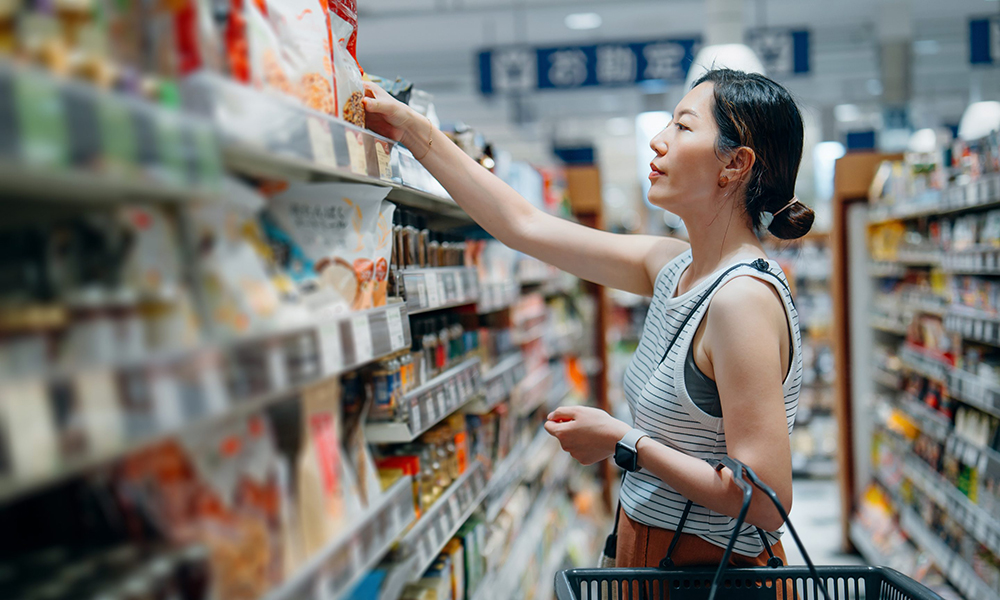
欧盟审计人员11月25日表示,欧洲购物者买食品时可能被大量混乱,有时甚至存在误导性的食品标签 “欺骗”,呼吁欧盟改善现行规则。
欧盟的标签制度要求提供有关食品成分准确而真实的信息,方便消费者购买食物时做出明智选择。
但根据欧洲审计法院(ECA)的说法,由于欧盟规则存在空白,消费者很容易迷失在令人费解的说法中。
“食品标签非但没提升清晰度,反而经常造成混乱。消费者还得解读数百种方案、标志和声明,”欧洲审计法院审计员凯特·彭图斯-罗西曼努斯表示。
“公司在包装上可能创意十足,欧盟的规则却没跟上不断发展的市场,导致约4.5亿欧洲消费者容易受到有意或无意的误导信息影响。”
欧盟规定要求生产商在食品包装上列出成分、过敏原和其他强制性信息。
公司可以添加营养和健康声明等自愿声明,例如“Omega-3脂肪酸的来源”或“钙是保持牙齿健康的必需物质”。
按照欧盟27国支出监管机构现行规定,允许企业放大产品更讨人喜欢的功效,同时掩盖负面效果。所以情况变得更为复杂。
报告称,一块含糖量很高的能量棒可以简单地贴上“高蛋白”标签,富含脂肪的橙子饼干可以贴上“纤维来源”标签。
“巨大影响”
报告称,即使有些说法有不实之处,对在线食品销售的检查和处罚也很薄弱,可以说几乎不存在。
审计员补充说,欧盟层面对植物物质或“植物药”相关的健康声明尚未监管,消费者可能面临没有科学支持的论断。
同样,尽管存在私人认证计划,但欧盟对“纯素”和“素食主义者”的含义并无清晰定义。
欧洲审计法院还表示,为了帮助消费者辨别更健康的视频,不同国家使用不同的“包装前营养标签”计划,如Nutri Score和Keyhole,加剧了混乱。
欧洲消费者权益组织Foodwatch正推动欧盟普遍应用在法国、德国和其他少数国家使用的Nutri Score营养标签。
“食品标签的尺寸不大却非常重要。标签会塑造了数百万人的饮食习惯,对欧洲消费者的健康影响巨大,”Foodwatch布鲁塞尔办事处负责人苏西·萨姆纳说。
欧洲审计法院敦促欧盟委员会采取一系列措施,包括解决欧盟法律框架中的漏洞,加强成员国对自愿标签和在线零售检查等等。(财富中文网)
译者:梁宇
审校:夏林
欧盟审计人员11月25日表示,欧洲购物者买食品时可能被大量混乱,有时甚至存在误导性的食品标签 “欺骗”,呼吁欧盟改善现行规则。
欧盟的标签制度要求提供有关食品成分准确而真实的信息,方便消费者购买食物时做出明智选择。
但根据欧洲审计法院(ECA)的说法,由于欧盟规则存在空白,消费者很容易迷失在令人费解的说法中。
“食品标签非但没提升清晰度,反而经常造成混乱。消费者还得解读数百种方案、标志和声明,”欧洲审计法院审计员凯特·彭图斯-罗西曼努斯表示。
“公司在包装上可能创意十足,欧盟的规则却没跟上不断发展的市场,导致约4.5亿欧洲消费者容易受到有意或无意的误导信息影响。”
欧盟规定要求生产商在食品包装上列出成分、过敏原和其他强制性信息。
公司可以添加营养和健康声明等自愿声明,例如“Omega-3脂肪酸的来源”或“钙是保持牙齿健康的必需物质”。
按照欧盟27国支出监管机构现行规定,允许企业放大产品更讨人喜欢的功效,同时掩盖负面效果。所以情况变得更为复杂。
报告称,一块含糖量很高的能量棒可以简单地贴上“高蛋白”标签,富含脂肪的橙子饼干可以贴上“纤维来源”标签。
“巨大影响”
报告称,即使有些说法有不实之处,对在线食品销售的检查和处罚也很薄弱,可以说几乎不存在。
审计员补充说,欧盟层面对植物物质或“植物药”相关的健康声明尚未监管,消费者可能面临没有科学支持的论断。
同样,尽管存在私人认证计划,但欧盟对“纯素”和“素食主义者”的含义并无清晰定义。
欧洲审计法院还表示,为了帮助消费者辨别更健康的视频,不同国家使用不同的“包装前营养标签”计划,如Nutri Score和Keyhole,加剧了混乱。
欧洲消费者权益组织Foodwatch正推动欧盟普遍应用在法国、德国和其他少数国家使用的Nutri Score营养标签。
“食品标签的尺寸不大却非常重要。标签会塑造了数百万人的饮食习惯,对欧洲消费者的健康影响巨大,”Foodwatch布鲁塞尔办事处负责人苏西·萨姆纳说。
欧洲审计法院敦促欧盟委员会采取一系列措施,包括解决欧盟法律框架中的漏洞,加强成员国对自愿标签和在线零售检查等等。(财富中文网)
译者:梁宇
审校:夏林
European grocery shoppers are at risk of “being fooled” by a proliferation of confusing and sometimes misleading food labels, EU auditors said Monday, calling on the bloc to improve current rules.
Labeling in the EU is meant to give consumers accurate and honest information on the contents of their food so they can make informed decisions about what they are buying.
But due to gaps in EU rules consumers can easily get “lost in a maze” of puzzling claims, according to the European Court of Auditors (ECA).
“Instead of bringing clarity, food labels too often create confusion; there are hundreds of different schemes, logos and claims that people need to decipher,” said Keit Pentus-Rosimannus, an ECA auditor.
“Companies can be very creative in what they put on packaging, and EU rules have not caught up with a constantly evolving market, leaving some 450 million European consumers vulnerable to intentionally or unintentionally misleading messages.”
EU rules require producers to list ingredients, allergens and other mandatory information on food packages.
Firms can then add voluntary statements including nutrition and health claims — such as “source of Omega-3 fatty acids” or “calcium is necessary to maintain healthy teeth”.
Here the picture gets muddier, according to the 27-nation bloc’s spending watchdog, as current rules allow businesses to zoom in on the more flattering features of their products and gloss over other aspects.
An energy bar with lots of sugar can for example be branded simply as “high in protein” and a fatty orange cookie as a “source of fibre”, according to the report.
‘Massive impact’
Even when such claims are false, checks and penalties are weak and almost non-existent for online food sales, it said.
Health claims related to plant-substances or “botanicals” are not yet regulated at EU level, which leaves consumers potentially exposed to assertions not supported by science, the auditors added.
Similarly, there is no EU definition of what “vegan” and “vegetarian” mean, although private certification schemes exist.
Finally, different “front-of-pack nutrition labelling” schemes such as Nutri-Score and Keyhole, which aim at helping shoppers identify healthier food options, are in use in different countries, adding to the confusion, the ECA said.
European consumer rights group Foodwatch is pushing for Nutri-Score, currently used in France, Germany and a handful other countries, to be adopted across the bloc.
“Food labels may often be small in size, but they are of huge importance: They shape eating habits of millions of people and therefore have a massive impact on the health of European consumers,” said Suzy Sumner, who heads the group’s Brussels office.
The ECA urged the European Commission to take a number of steps including addressing the gaps in the EU legal framework, and strengthening member states’ checks on voluntary labels and online retail.






